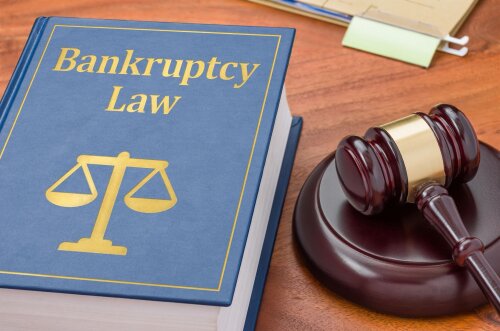Best Bankruptcy Lawyers in Alabama
Share your needs with us, get contacted by law firms.
Free. Takes 2 min.
Or refine your search by selecting a city:
List of the best lawyers in Alabama, United States
About Bankruptcy Law in Alabama, United States
Bankruptcy is a legal process that helps individuals and businesses overwhelmed by debt to eliminate or reorganize their obligations under the protection of the federal bankruptcy court. In Alabama, as across the United States, bankruptcy is primarily governed by federal law found in the U.S. Bankruptcy Code. However, certain exemptions and procedures are shaped by Alabama law. Filing for bankruptcy can provide relief from creditor harassment, wage garnishments, repossessions, and foreclosure. The most common types are Chapter 7 (liquidation) and Chapter 13 (reorganization) for individuals, each with specific eligibility requirements and consequences.
Why You May Need a Lawyer
Navigating bankruptcy law can be complex, particularly when dealing with specific Alabama statutes in addition to federal rules. You might need a bankruptcy attorney if you are facing persistent collection calls, wage garnishment, foreclosure, or repossession of property. An attorney can help you determine if bankruptcy is the right solution, which chapter to file under, ensure you understand which debts can and cannot be discharged, prepare and file necessary paperwork, represent you at hearings, and protect your rights and property throughout the process. Without legal assistance, mistakes could lead to loss of property, case dismissal, or criminal liability for errors on your documents.
Local Laws Overview
While the bankruptcy process is federally regulated, Alabama law affects which assets you can protect, known as "exemptions." Alabama exemptions are generally less generous than those in many other states. For instance, Alabama allows a relatively low amount to be protected in your home (homestead exemption), vehicles, and personal belongings. Alabama does not permit the use of federal exemptions in addition to state exemptions. Additionally, Alabama has specific rules related to wage garnishment limits, notification requirements for creditors, and certain types of property that can be protected during bankruptcy. It is crucial to review these local rules with a qualified attorney familiar with Alabama bankruptcy law.
Frequently Asked Questions
What types of bankruptcy can individuals file in Alabama?
Most individuals file either Chapter 7 or Chapter 13 bankruptcy. Chapter 7 involves liquidating non-exempt assets to pay creditors and discharging most remaining debts. Chapter 13 involves reorganizing debts into a three- to five-year payment plan. Each has different eligibility requirements and outcomes.
What property can I keep if I file bankruptcy in Alabama?
Alabama law sets specific limits on exempt property. You may protect a portion of equity in your home, basic personal items, and tools of your trade. Non-exempt assets may be sold to pay creditors in a Chapter 7 case. An attorney can review your specific property and help maximize your exemptions.
Will I lose my house or car if I file for bankruptcy?
If you are current on your mortgage or car payments and your equity does not exceed Alabama's exemption limits, you may be able to keep these assets, particularly in a Chapter 13 case. If you are behind on payments, bankruptcy can sometimes help you get caught up, but outcomes vary by case.
How does bankruptcy affect my credit?
A bankruptcy filing will remain on your credit report for seven to ten years. However, many people find that their credit begins to improve once their debts are managed. You may be able to obtain credit again sooner than expected by following sound financial practices.
Can all debts be wiped out in bankruptcy?
Not all debts can be discharged in bankruptcy. For example, recent taxes, child support, alimony, certain student loans, court fines, and debts resulting from fraud usually cannot be eliminated. Speak with a lawyer to review which debts are dischargeable in your situation.
Does my spouse have to file bankruptcy with me?
No, but your spouse may be affected if you have jointly owned property or debts. Each spouse can file separately or as part of a joint case. An attorney can advise on the best approach for your household.
How often can I file for bankruptcy?
There are waiting periods between bankruptcy filings, depending on the type previously filed and the type you wish to file. For example, after a Chapter 7 discharge, you generally must wait eight years before filing Chapter 7 again.
Will bankruptcy stop foreclosure, repossession, or garnishment?
Filing bankruptcy generally triggers an "automatic stay," halting most collection actions, including foreclosure, repossession, and wage garnishment. However, this stay can be temporary, and certain actions may eventually proceed unless you are able to cure past-due payments or develop a payment plan.
How much does it cost to file for bankruptcy in Alabama?
There are court filing fees for bankruptcy, which vary by chapter, and you may also need to pay attorney fees. Some attorneys offer payment plans or flat-fee services, and fee waivers may be available based on income.
What should I bring to my first meeting with a bankruptcy lawyer?
You should bring a list of your debts, recent bank statements, pay stubs, tax returns, information on your assets, and any legal documents relating to debt collections, foreclosure, or lawsuits. Being thorough helps your lawyer give you the best possible advice.
Additional Resources
If you are considering bankruptcy or have questions, there are several resources available in Alabama:
- United States Bankruptcy Court for the Northern, Middle, and Southern Districts of Alabama
- Alabama State Bar Lawyer Referral Service
- Legal Services Alabama - provides free legal aid for qualified individuals
- Consumer Credit Counseling Services - nonprofit organizations that offer debt counseling
- Local county law libraries and self-help centers
Next Steps
If you believe bankruptcy may be the best solution for your financial situation, consider the following steps:
- Gather your financial documents, including details on debts, assets, income, and expenses.
- Consider obtaining a free credit report to ensure you have accurate debt information.
- Contact an experienced Alabama bankruptcy attorney for a consultation. Most offer an initial meeting at no cost or a minimal fee.
- Prepare questions to ask regarding which chapter to file, how your assets may be affected, and alternative debt relief options.
- Follow your attorney's advice on credit counseling, required courses, and preparing your bankruptcy petition.
Lawzana helps you find the best lawyers and law firms in Alabama through a curated and pre-screened list of qualified legal professionals. Our platform offers rankings and detailed profiles of attorneys and law firms, allowing you to compare based on practice areas, including Bankruptcy, experience, and client feedback.
Each profile includes a description of the firm's areas of practice, client reviews, team members and partners, year of establishment, spoken languages, office locations, contact information, social media presence, and any published articles or resources. Most firms on our platform speak English and are experienced in both local and international legal matters.
Get a quote from top-rated law firms in Alabama, United States — quickly, securely, and without unnecessary hassle.
Disclaimer:
The information provided on this page is for general informational purposes only and does not constitute legal advice. While we strive to ensure the accuracy and relevance of the content, legal information may change over time, and interpretations of the law can vary. You should always consult with a qualified legal professional for advice specific to your situation.
We disclaim all liability for actions taken or not taken based on the content of this page. If you believe any information is incorrect or outdated, please contact us, and we will review and update it where appropriate.
Browse bankruptcy law firms by city in Alabama
Refine your search by selecting a city.














